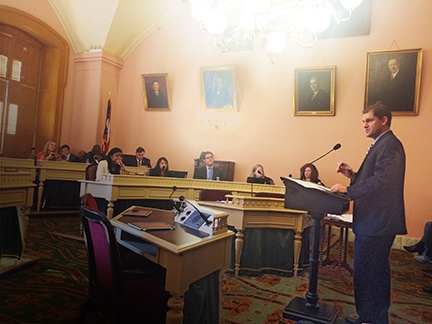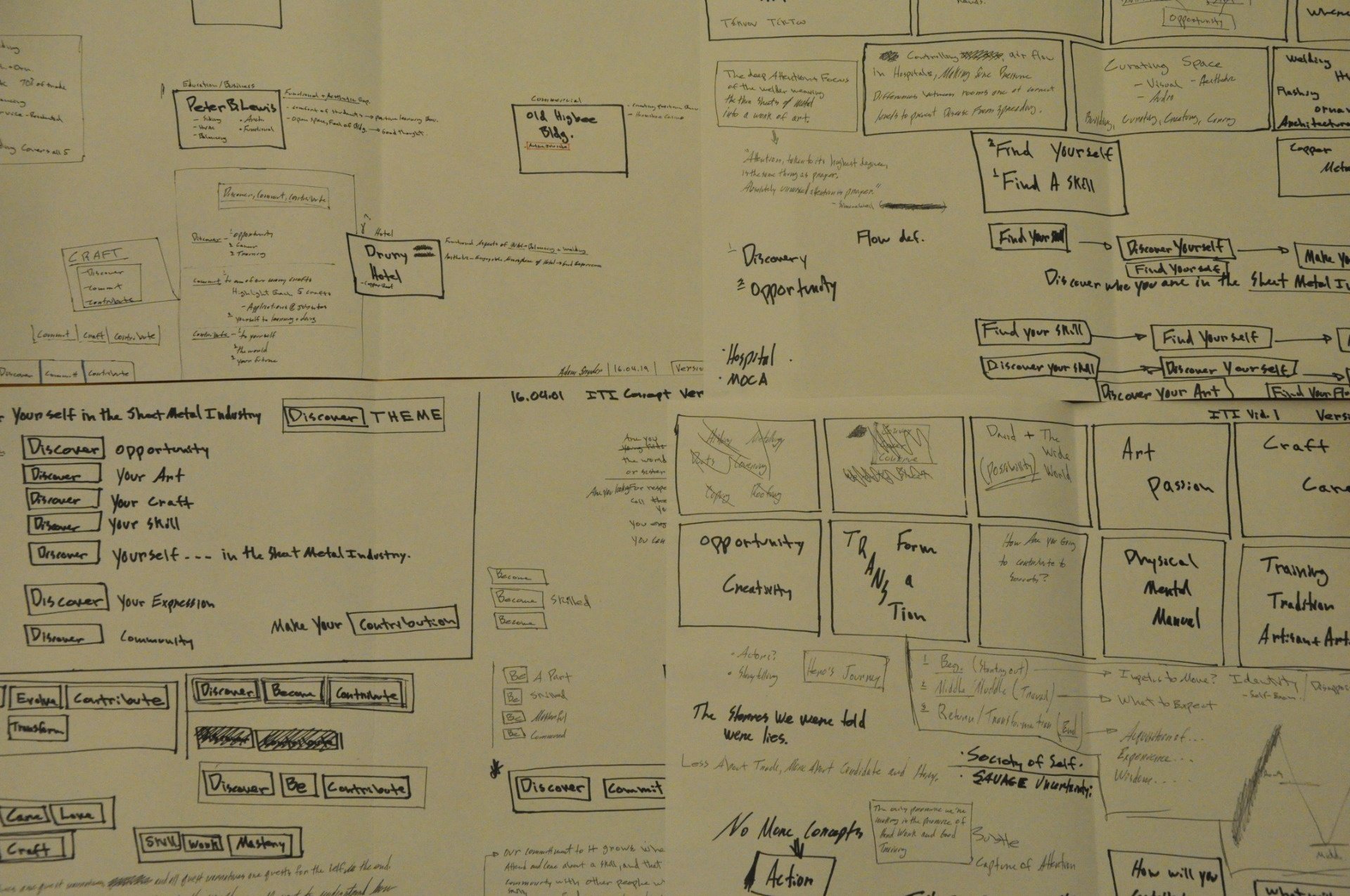In an attempt to pay off a massive federal loan and keep Ohio’s trust fund solvent, a new controversial unemployment benefits bill could have significant, long-term, damaging effects on the construction industry.

Some organizations have come out against the proposed legislation, including representatives for Ohio’s Construction Trades. Matthew A. Szollosi, executive director of Affiliated Construction Trades Ohio, said the non-profit arm of the Ohio Building Trades is adamantly opposed to the bill in its current form. Szollosi testified to the committee on December 2 highlighting the problems and encouraged changes to the bill (pictured here).
House Bill 394 would reduce the number of weeks a person can receive benefits based on a sliding scale linked to the overall state unemployment rate. Currently, Ohio offers 26 weeks of unemployment benefits. Under HB 394, if the jobless rate falls to 5.5% or lower, unemployed workers would be eligible for no more than 12 weeks of benefits. Should the unemployment rate increase to 9.9% or higher, jobless workers would get up to 20 weeks of benefits.
Szollosi called the potential reduction catastrophic – not just for members, but for the entire construction industry. If the current version of the legislation passes, it will result in a significant loss of qualified, skilled construction workers, who would look elsewhere for work, he said.
Besides the sliding scale, other changes include the requirements to make a person eligible for unemployment. The proposed language would require workers to have earnings in at least three-quarters of a year to qualify for aid, something more difficult for jobs that require temperatures above freezing.
Another provision calls for the implementation of a ‘waiting weeks,’ or a period that jobless workers must wait before collecting benefits. Currently, workers must wait one week before they become benefit eligible. The bill would require individuals to wait one week each time they earn more than their weekly benefits amount.
This language has the potential to discourage construction workers from reporting to work on small construction projects that might last only a few days.
Additionally, this bill will eliminate the dependency classification aspect of unemployment benefits. It will take away additional benefits for those with two or more dependents.
Szollosi says legislators have acknowledged changes to the bill are necessary.
LaborTools powered by BMA Media Group is used to help strengthen our union client’s organizations. From working with unions from the local level to the international, with training funds and labor management partnerships, as well as other labor organizations, BMA has experience with organizations of all sizes. We are here to create and implement unique and customized marketing campaigns for our clients.
At BMA, we offer services in the following categories: union event services (from writing the history of your union to executing the logistics of an event,) video production, website design, union marketing campaigns, print and broadcast advertising, social media management, development of print materials, building trades industry education, labor public relations and crisis management, union merchandise, as well as strategic branding and marketing of union organizations.
BMA Media Group is a Union Building Trades Contractor, signatory with International Brotherhood of Electrical Workers Union Local 673 and International Union of Painters and Allied Trades DC 6 / Sign Display and Allied Trades Local 639. BMA Media Group is also signatory with AFTRA and an affiliate contractor of the Cleveland Chapter of NECA.



